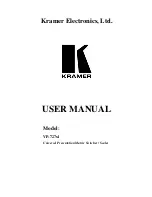
53
1.
Port A1 can only receive BPDUs and cannot send BPDUs to Port B1.
2.
Port B1 does not receive BPDUs from Port A1 for a certain period of time.
3.
Device B determines itself as the root bridge.
4.
Port B1 sends its BPDUs to Port A1.
5.
Port A1 determines the received BPDUs are inferior to its own BPDUs. A dispute is detected.
6.
Dispute guard is triggered and blocks Port A1 to prevent a loop.
Figure 19 Dispute guard triggering scenario (on a designated port)
As shown in
, in normal conditions, Device A is the root bridge, and Port B1 and Port C1 are
root ports. When the links between Device A and Device B become unidirectional (the links fail in the
direction of Port A1 to Port B1), the following events occur:
1.
Device B cannot receive BPDUs from Device A.
2.
Device B determines itself as the root bridge.
3.
Port B1 sends BPDUs in which the root bridge is Device B to Port C1.
4.
Port C1 receives BPDUs from two root bridges, Device A and Device B. A dispute is detected.
5.
Dispute guard is triggered and blocks Port C1 to avoid a loop.
Device A
Device B
Root
Root port
Designated port
Normal link
Blocked link
Blocked port
Port A1
Port A2
Port B1
Port B2
Device A
Device B
Root
Port A1
Port A2
Port B1
Port B2
Normal condition
Unidirectional link
occurs
Device A
Device B
Root
Port A1
Port B1
Port B2
Dispute guard is
triggered
Port A2
Unidirectional link
Summary of Contents for S6850 Series
Page 108: ...48 WGE1 0 3 32768 49153 50100 0x7b 0001 0001 0001 ACDEF...
Page 259: ...21 6 N A 200 6...
Page 337: ...ii...
















































